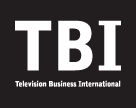- Board of Governors
- Board of Directors
- Privacy Policy
- Contact Us
- Archive
International Media Censorship: Global Freedom of Press Issues
You’ve likely noticed how media organizations are shutting down across the globe. This unsettling trend raises important questions about the safety of journalists and the health of democracy itself. As threats and violence escalate, freedom of expression hangs in the balance. With economic challenges complicating matters, misinformation is spreading faster than ever. But what does this mean for the future of informed public discourse? Let’s explore the implications further.
The Ongoing Wave of Media Shutdowns
As economic challenges affect nearly one-third of countries globally, news organizations are experiencing significant shutdowns that jeopardize the availability of essential information. This economic instability often correlates with an increase in censorship, particularly in nations governed by autocratic regimes.
Independent media outlets are increasingly struggling to maintain their operations, which restricts access to a variety of viewpoints. Journalists in many regions face threats, including imprisonment, which contributes to the worsening state of press freedom.
According to the RSF World Press Freedom Index, there are concerning developments that categorize global press freedom as being in a “difficult situation” for the first time. If the trend of media shutdowns persists, it could lead to a decreased presence of critical media voices, potentially undermining informed public discourse.
Threats and Violence Against Journalists
Journalists encounter significant dangers in their profession, often facing life-threatening situations simply for the act of reporting.
On average, a journalist is killed every four days, reflecting the serious risks that can arise from their work. Authoritarian governments often contribute to this issue by implementing stringent censorship measures and targeting those who report on human rights abuses.
Between 2006 and 2020, over 1,200 journalists were killed worldwide, illustrating the severe consequences and lack of accountability surrounding violence against media professionals.
Female journalists face heightened risks, often encountering higher levels of harassment and intimidation both online and offline.
The ongoing threats to journalists' safety underscore the vital role they play in promoting press freedom and sustaining democratic values.
The Impact of Economic Fragility on Press Freedom
Economic fragility has a notable impact on press freedom worldwide, resulting in a challenging landscape for media outlets and journalists.
In 2025, approximately one-third of countries experienced shutdowns of news outlets due to economic difficulties, exacerbating the struggle for the sustainability of media operations. A significant portion of journalists, over 60%, faced challenges in earning a livable wage, leading to significant financial stress for independent media organizations.
This economic pressure has contributed to a marked concentration of media ownership in 46 countries, which diminishes media pluralism and can result in the formation of news deserts—areas with limited access to diverse reporting sources.
As press freedom declines, the availability of reliable information reduces, posing risks to democratic processes and informed public discourse.
This situation underscores the importance of economic support and structural changes needed to bolster press freedom in fragile economies.
The Rise of Disinformation Campaigns
The rise of disinformation campaigns presents significant challenges for media outlets, particularly amid economic fragility. These campaigns have become more sophisticated in the digital landscape, posing threats to media integrity and press freedom.
There are documented instances where disinformation has incited violence against journalists and has had severe public health implications. For example, misinformation related to the COVID-19 pandemic contributed to detrimental outcomes, including loss of life.
In response, media professionals are adopting various strategies, such as the online course initiated by the Knight Center, which aims to enhance understanding of media freedom on a global scale.
Despite these efforts, issues such as concentration of ownership in the media industry and a culture of impunity for those spreading disinformation continue to undermine both freedom of expression and the pursuit of truth.
The Role of Community Media in Promoting Freedom of Expression
Community media plays a significant role in promoting freedom of expression by providing a platform for marginalized voices. By ensuring that local communities have access to media outlets, these platforms can enhance the diversity of perspectives available in public discourse. This is particularly important in remote areas, where traditional media may be less accessible.
The presence of community media outlets contributes to press freedom by allowing local journalists to disseminate critical information relevant to their communities. By fostering an environment of pluralism and inclusivity, community media can also serve as a countermeasure against misinformation and censorship. The alternative narratives shared through these outlets may help to ensure that a wider range of viewpoints is represented.
Training initiatives provided by organizations such as UNESCO are essential in this context. These programs aim to equip journalists with the skills necessary to adhere to international reporting standards, thereby improving the overall quality of the media landscape. Such training not only enhances journalistic practices but also reinforces citizens' rights to access information.
Moreover, the empowerment of community media contributes to social cohesion and the preservation of cultural heritage. By facilitating the sharing of local stories and cultural practices, community media helps to maintain a sense of identity and continuity within communities, which is important for future generations.
Global Collaborative Efforts to Protect Journalistic Rights
Community media plays a significant role in fostering diverse perspectives, which is essential for broader global efforts to safeguard journalistic rights. UNESCO is actively involved in this process, having trained approximately 23,000 judicial officials on media law, which aims to improve protections for journalists.
Initiatives like the #TruthNeverDies campaign seek to raise awareness regarding the violence and censorship encountered by journalists around the world. Global actions are targeted at promoting independent media, viewing pluralism as a fundamental aspect of press freedom.
Through international collaboration, UNESCO advocates for safe environments for journalists, which supports rights advocacy. Furthermore, the UNESCO/Guillermo Cano World Press Freedom Prize recognizes individuals who demonstrate bravery in defending press freedom in challenging circumstances, thereby reinforcing these essential initiatives.
Conclusion
In today's world, the fight for press freedom is more crucial than ever. As media shutdowns and violence against journalists increase, it's up to you to support and advocate for diverse voices. By staying informed and engaging with community media, you can help counter disinformation and promote transparency. Let's collectively push back against censorship and protect the rights of journalists everywhere. Together, we can ensure a vibrant exchange of ideas that strengthens democracy and society.









